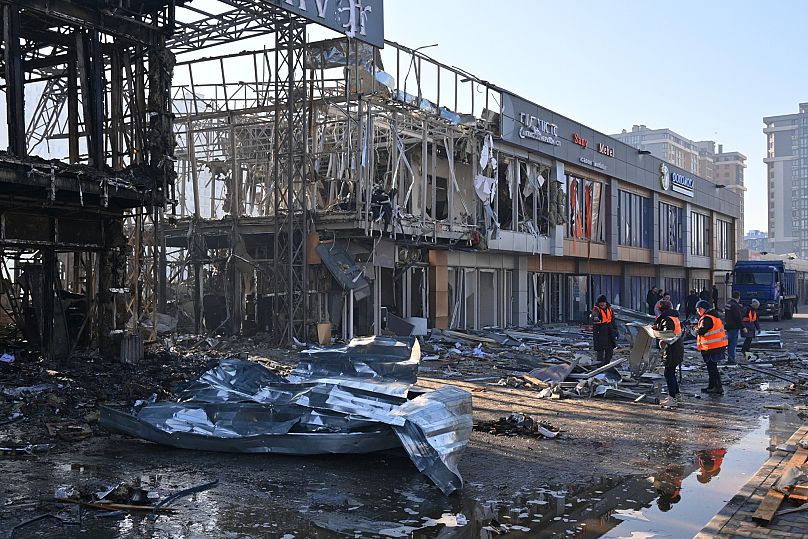German customs authorities have seized the Panama-flagged tanker 'Eventin', which has been anchored off Germany's Baltic Sea coast since January.
The ship is believed to be part of Russia's so called 'shadow fleet' of aging tankers of uncertain ownership and safety practices that Western governments say Moscow has resorted to using to dodge sanctions and keep oil revenue flowing.
Security sources told German news magazine Der Spiegel that a confiscation order was issued by the General Customs Directorate and that both the tanker and the approximately 100,000 tons of crude oil, valued at over €40 million, will now become German property.
According to the report, the German government decided to confiscate the ship rather than let it go after it was listed as part of Russia's shadow fleet in February.
It added that the government and Foreign Ministry believe this approach is intended to send a signal to Russia that Germany will not stand by as Russian oil transits through the Baltic Sea.
Evading international oil sanctions
The shadow fleet is made up of aging tankers bought used, often by non-transparent entities with addresses in non-sanctioning countries such as the United Arab Emirates or the Marshall Islands, and flagged in places like Gabon or the Cook Islands.
The new owners use new insurers in Russia or other non-Western locations.
Some of the vessels are owned by the Russian state Sovcomflot shipping company. Their role is to help Russia's oil exporters elude the $60 per barrel price cap imposed by Ukraine's allies.
The cap is aimed at limiting Russia's profits while keeping the oil flowing to global markets and avoiding an energy crunch that would drive up gasoline prices and inflation.
Estimates vary, but S&P Global and the Kyiv School of Economics Institute have put the number at over 400 ships that can transport oil, or products made from crude such as diesel fuel and gasoline.

Dodging the cap has increased the price Russia gets for its oil on global markets, sanctions experts say.
Export revenues averaged $16.4 billion per month for the first 11 months of 2024, 5% higher than in the same period in 2023 as Russian oil averaged $64 per barrel, according to the Kyiv School of Economics. Evading the cap earned Russia an extra $9.4 billion.
That means it also impacts how Russia prosecutes its war in Ukraine, as the Kremlin can use that profit to pay for the production of weapons and other goods for the military.
Oil income promotes economic stability by helping keep the budget deficit under control, and by supporting the value of the Russian ruble against other currencies. Oil keeps Russia's trade balance in surplus, meaning it sells more than it buys from the rest of the world and has money to pay for imports.
As a result, "Russia faces no significant constraints on its budget or war spending," Kyiv school experts said in their latest assessment of the Russian economy.
The Kremlin has so far declined to comment on the shadow fleet.







